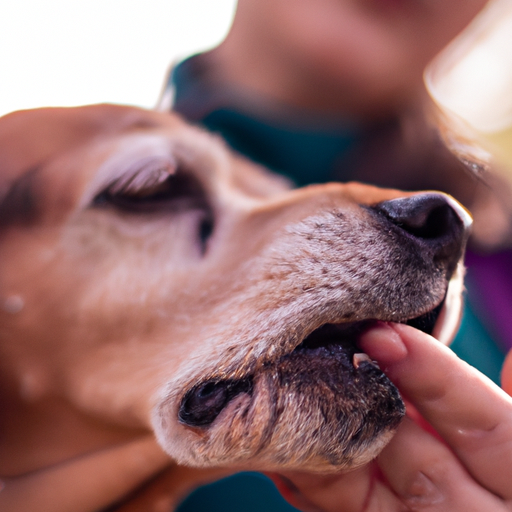As a caregiver for your canine companion, it’s only natural that any signs of discomfort or distress can be concerning. One symptom that may cause worry is a swollen mouth. This article will provide insight into potential causes, treatment options, and preventive measures for this issue.
1. Possible Causes of Swollen Mouth in Dogs
There are several reasons why your dog’s mouth might be swollen. Here are a few possibilities:
- Dental Disease: This is a common issue in dogs, especially as they age. Plaque and tartar buildup can lead to gum inflammation and swelling.
- Injury or Trauma: Your dog might have injured its mouth while chewing on a hard object or during play.
- Allergic Reactions: Your dog may have an allergic reaction to a certain food, medication, or environmental factor.
- Infections: Bacterial or viral infections can cause swelling in your dog’s mouth.
- Tumors or growths: Although less common, tumors or growths can cause swelling in a dog’s mouth.
2. How to Identify the Cause
Identifying the cause of your dog’s mouth swelling can be challenging. Here’s a guide on what to look for:
- Examine the Mouth: Look for any signs of injury, foreign objects, or noticeable growths.
- Monitor Eating Habits: If your dog is having difficulty eating or is avoiding food, it could be a sign of dental disease or an injury.
- Check for Other Symptoms: Symptoms like excessive drooling, bad breath, or changes in behavior can provide clues about the cause of the swelling.
Remember, it’s essential to consult with a veterinarian for a proper diagnosis.
3. Treatment Options
The treatment for a swollen mouth will depend on the root cause. Here are some potential treatments:
- For dental disease, a professional cleaning or even tooth extraction might be necessary.
- Injuries may require antibiotics or anti-inflammatory medication.
- Allergic reactions might be addressed with antihistamines or a change in diet.
- Infections are usually treated with antibiotics.
- Tumors or growths might require surgical removal.
4. Preventive Measures
Prevention is always better than cure. Here are some steps you can take to prevent mouth swelling in your dog:
- Regular dental check-ups and at-home oral care can help prevent dental disease.
- Monitor your dog’s play and chew toys to prevent injuries.
- Regular vet check-ups can help identify and address issues early.
5. Frequently Asked Questions
Q: Should I immediately take my dog to the vet if its mouth is swollen?
A: If the swelling is severe, sudden, or accompanied by other worrying symptoms (like difficulty breathing), you should seek immediate veterinary attention.
Q: Can I give my dog human medication for its swollen mouth?
A: No, some human medications can be harmful to dogs. Always consult with a vet before administering any medication.
Q: How can I keep my dog’s mouth healthy?
A: Regular dental check-ups, a good diet, and at-home oral hygiene practices (like brushing your dog’s teeth) can help maintain oral health.
Remember, observing your dog’s behavior and keeping up with regular vet visits is the best way to ensure their health and happiness.



